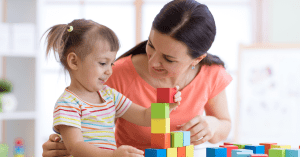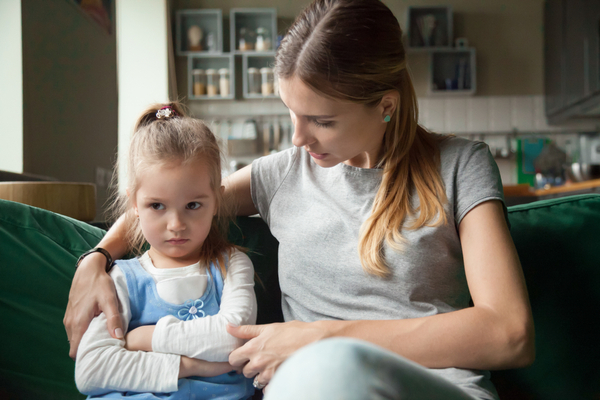The COVID-19 virus and subsequent pandemic has resulted in a new and seemingly ever-changing way of life in a bid to protect people’s health and safety and prevent healthcare systems from being overrun.
Since early 2020 this has meant facing varying levels of restrictions on the way we go about our day-to-day lives including work and education. In addition to lockdowns, adjustments have been required for people to get used to face masks, online learning and working from home and not seeing our friends and families. Undoubtedly, this ongoing turbulence has been a stressful and confusing environment for young children.
Among their own challenges, educators have continued to be an invaluable source of support and compassion during the pandemic, both in person and via online learning and other forms of communication with children and families.
As lockdown fatigue sets in people, particularly in Victoria, are struggling to stay positive while managing restrictions, work and caring for children. While many children are no longer able to access in-person early childhood education at all, there are ways educators and childcare centres, as well as carers and parents, can continue to support the children in their care.

Tips to support children in managing change
Change can be challenging but there are many things you can implement to reduce the impact of change and help children to adapt as well as possible. Here are a few key tips that will optimise your approach to periods of change and shifting learning and care environments.
Offering engaging learning and care online
Some centres and educators are offering digital resources for families to access to keep up that contact and familiarity between educators and children, even when they can’t be there in person. This might be something to consider for you. Filming yourself reading a favourite children’s book, singing a song, showing some of the special spaces and artwork in the service and more.
Stick to a consistent routine
We all know that children thrive on routine. Knowing what is coming helps to reduce stress and make children feel confident and safe. For those still attending childcare services, keep that same routine in place as much as possible despite the fact that there will likely be some changes. If you are supporting children and their families with remote education opportunities, let families and carers know what the timetable usually consists of so that children can stay in routine even outside of their usual childcare attendance. This will make returning to care easier too.
Make sure children feel safe
Creating an environment that feels as safe and secure as possible is essential for children to thrive. Tell them they are safe, stick to familiar and predictable routines or surroundings where possible and show them that they are loved and cared for. Use mindfulness techniques to calm children and add to their own toolbelts for when they are seeking to feel calm and safe.
Answer questions as they come up
It’s only natural that children will have questions to go along with each new change in restrictions or their routines. Questions might be: Why are people wearing masks? What is COVID-19? When will it be over and life will return to normal? Will I get sick? Follow the child’s lead and ask them what they think the answer might be to find out how much they know, so you can work with them and clarify any information they might have heard. Be calm and reassure children that everyone is doing their best to keep them safe, whether that’s to prevent people catching the virus or treating those who have it.
Expect that issues might pop up
Periods of change can impact children in unexpected ways. For example, instead of a child simply being upset about lockdowns you might encounter issues like regression. This could result in tantrums, toilet training troubles or speech difficulties. Be patient in the face of issues that arise at times of change for children — they will catch up, they just need nurturing and time.
Promoting adaptability and resilience in children
Beyond the pandemic and its effects, emotional development that focuses on adaptability and resilience is important for young children. Life is full of instances where we will be faced with new or altered information and circumstances, so learning how to react and navigate a range of situations is vital. Thankfully, many children tend to be effective learners when it comes to these traits.
You can nurture children’s adaptability and harness their resilience a number of different ways, including:
- Allow children to lose or fail: It’s tempting to ensure children win every game to keep the peace, but learning to come last sometimes is a life skill. Rather than rig a game, give children the chance to understand that they get to try again and talk about how they can overcome certain obstacles next time.
- Change up routines a little from time to time: Now and then it’s good to switch things around to get children accustomed to the fact that life cannot always be predictable. Start small: for example, instead of doing morning yoga indoors, head outside.
- Role model these traits: Being adaptable, flexible and resilient as an educator or even as a carer or parent can show children the power of these traits. And don’t forget to praise children when they display these qualities too!
Reach out for and recommend these support resources
Together we can work through and adapt to changing environments, while supporting young children to have the best start possible.
Remember, you don’t need to handle everything alone, and that includes providing support for children’s (and adults’) mental health and wellbeing. There are plenty of resources to reach out to for help — we’ve listed some below. You might also like to share these resources with families and carers.
Kids Helpline – Provides private and confidential 24/7 phone and online counselling service for young people aged 5 to 25.
Website: www.kidshelpline.com.au Telephone: 1800 55 1800
Beyond Blue – Provides information, and support for depression, anxiety and suicide prevention.
Website: www.beyondblue.org.au Telephone: 1300 224 636
Headspace – Provides young people with information and resources on mental health, physical health, work and study support, and alcohol and other drug services.
Website: www.headspace.org.au Telephone: 1800 650 890
Lifeline Australia – Provide access to 24 hour crisis support and suicide prevention services.
Website: www.lifeline.org.au Telephone: 13 11 14



